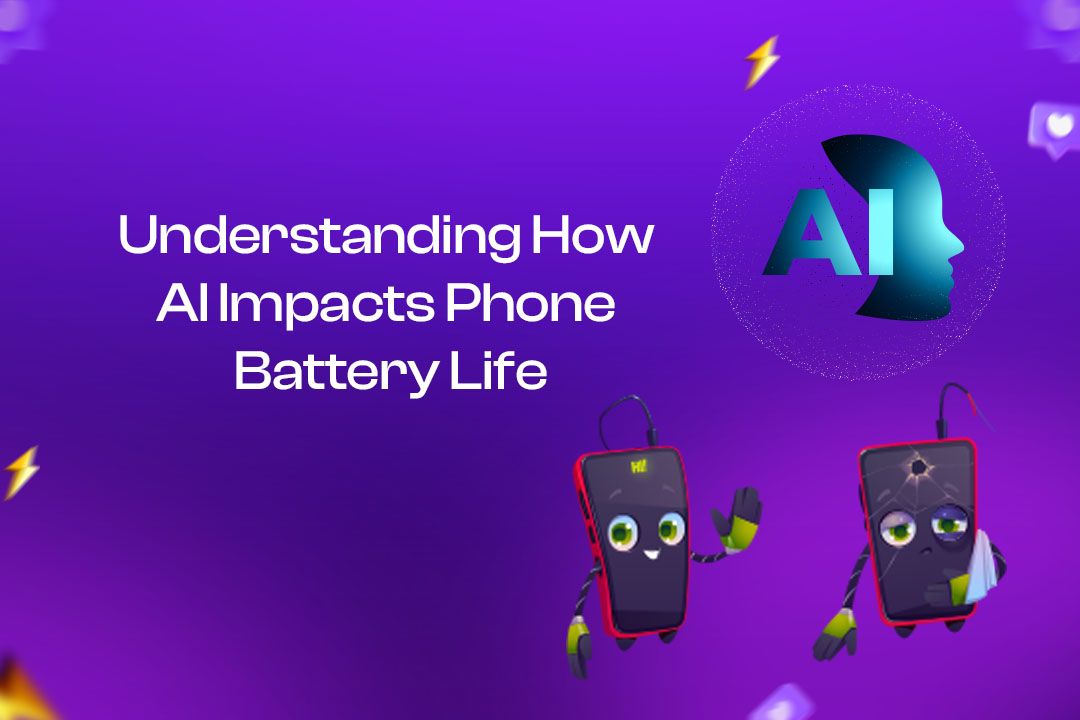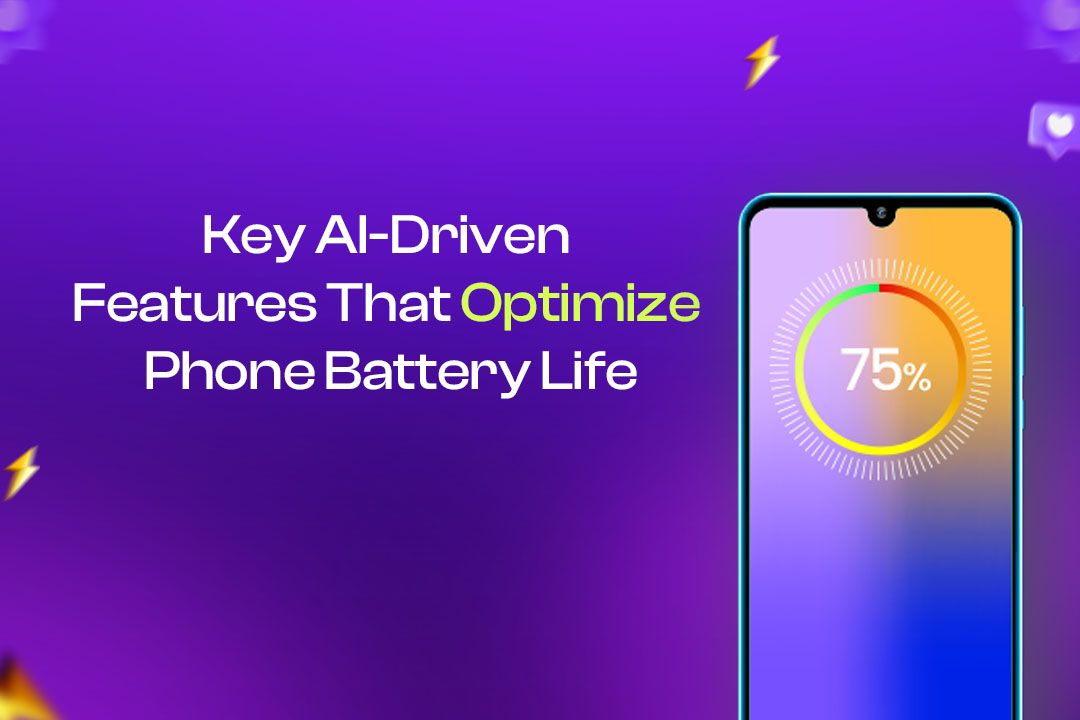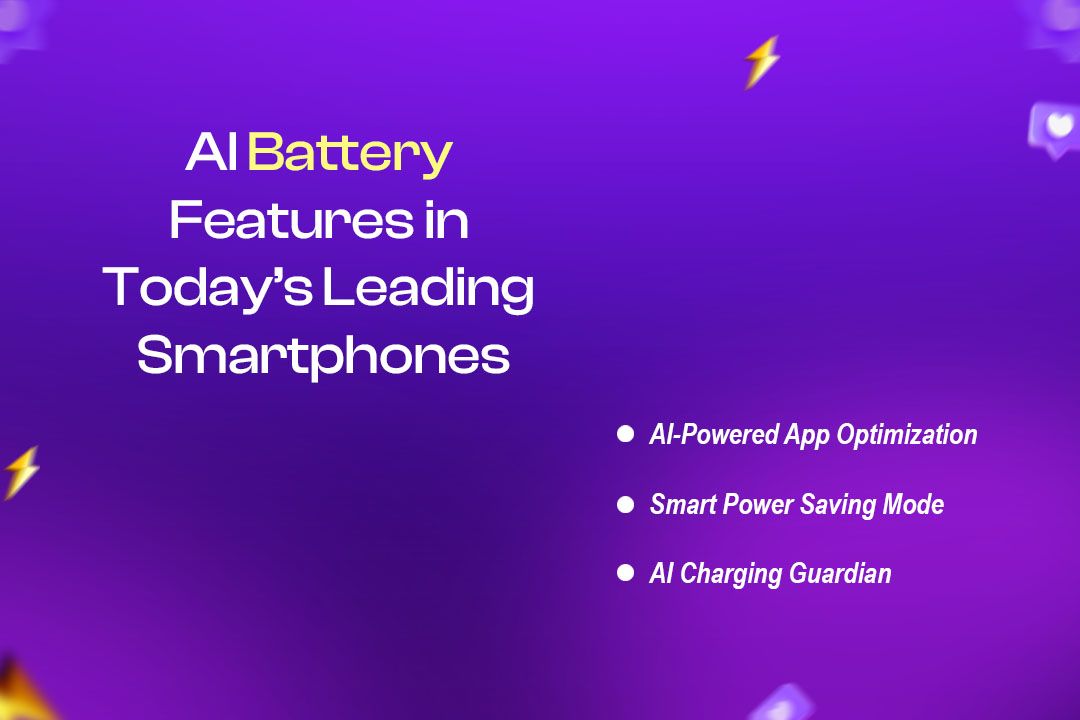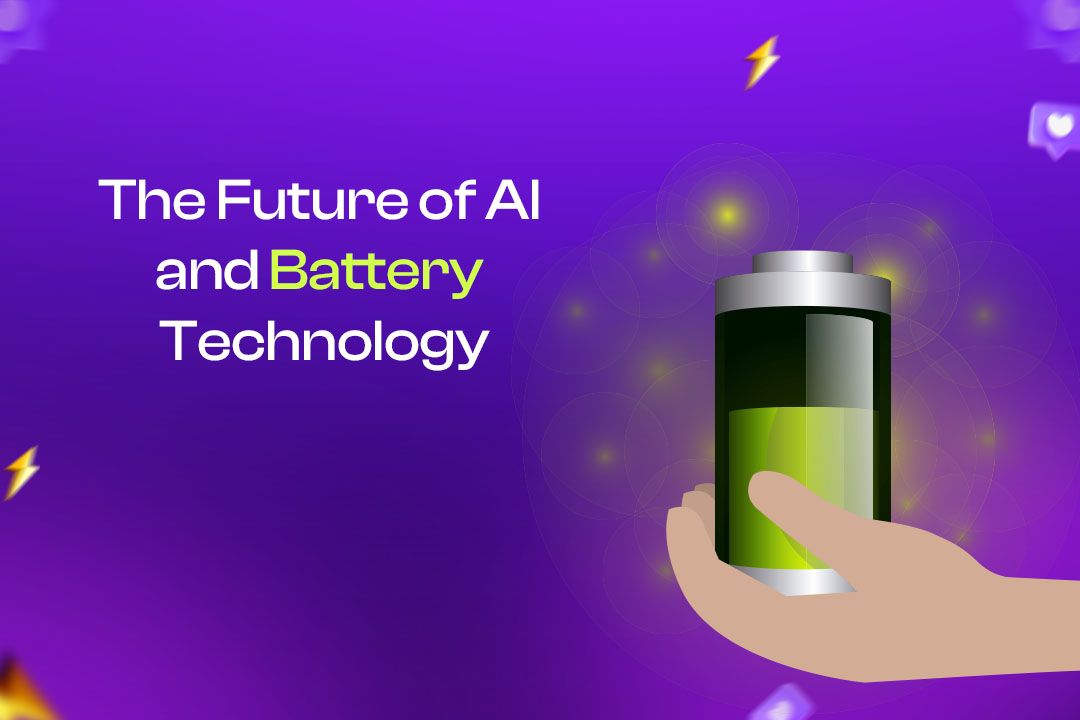By Sara Delgado - Senior Editor | Last updated: July 14, 2025 | 13 Min Read

Despite having faster processors and bigger batteries, many smartphone users still struggle with battery life. With more apps running and constant multitasking, traditional ways of saving power just aren’t enough anymore.
In 2025, AI is changing how smartphones manage their battery. How AI impacts phone battery life in 2025 is all about smarter energy use, adjusting to your habits, and boosting efficiency. This article will take you through the key AI features that are helping phones last longer and work smarter with their power.
As smartphones become more powerful, battery life remains one of the biggest user concerns. Traditional battery-saving methods like power-saving modes and manual app restrictions are quickly being replaced by AI-powered systems that adapt in real-time.
In 2025, Artificial Intelligence is at the heart of how your smartphone manages energy—intelligently learning your habits, optimizing performance, and extending battery life without sacrificing usability. In this section, we’ll explain how AI works behind the scenes to deliver more intelligent power management and transform your phone’s battery efficiency.
Artificial Intelligence (AI) plays a far more integral role in smartphones than most users realize. It's not just behind facial recognition or voice assistants—it’s also working quietly in the background to optimize system performance, especially when it comes to battery life.
Inside modern smartphones, AI algorithms continuously analyze how you use your device: which apps you open the most, what times of day you’re most active, and even your screen interaction patterns. With this data, AI can make smart decisions that extend your phone’s battery without you lifting a finger.
Rather than relying on fixed rules or one-size-fits-all settings, AI enables your device to learn and adapt. The result? A smartphone experience that feels fluid and responsive, without draining your battery unnecessarily.
In the past, saving battery meant toggling on "Battery Saver" mode, dimming the screen manually, or killing background apps. These static settings were effective to a point, but they often degraded user experience and required manual input.
AI has revolutionized this. Now, instead of applying the same power-saving logic across all users, smartphones tailor energy management to the individual. Whether you’re binge-watching videos, navigating through maps, or casually browsing social media, AI adjusts system resources in real-time based on your current activity.
This dynamic optimization ensures that power is preserved when possible and deployed only when necessary, without compromising performance.
Google introduced the concept of Adaptive Battery with Android 9 (Pie) back in 2018, marking the first major step toward AI-based battery management. This feature used on-device machine learning to predict which apps a user was likely to open soon, and which ones they wouldn’t, so it could allocate system resources more efficiently.
Fast forward to 2025, and AI-driven power optimization has become far more advanced. Today’s devices are equipped with AI chips and system-wide intelligence that not only manage app usage but also factor in network activity, sensor input, thermal output, and user location.
Modern smartphones use federated learning—keeping data on-device for privacy while still learning and adapting—to create personalized power profiles that stretch battery life further than ever before.
AI now enables phones to think ahead, learn user behavior, and make power-saving decisions on the fly. Let’s explore the most important AI-powered features that are actively transforming how smartphones manage energy.
One of the most powerful ways AI enhances battery life is through adaptive battery management. Instead of treating all apps equally, AI studies your behavior over time—when you open certain apps, how long you use them, and which ones you rarely touch.
Based on this learning, your smartphone can:
Charging habits can make or break your battery’s long-term health. AI now plays a crucial role in intelligent charging, learning your daily routines to keep the battery safe from overcharging and premature wear.
Here’s how it works:
AI doesn’t just optimize which apps run—it also controls how your phone uses its processing power. Through context-aware performance scaling, AI dynamically adjusts key components like the CPU, GPU, and screen refresh rate.
This feature ensures that:
Now, let’s look at how top-tier phones are using AI to make every charge count.
Samsung’s Galaxy S25 series showcases some of the most advanced AI-driven battery tools in the market today. Building on years of innovation, Samsung's One UI software integrates deeply with hardware-level AI to stretch every milliamp-hour.
Key features include:
Real-world impact: Benchmarks show the Galaxy S25 can extend daily usage by up to 15–20% compared to its predecessor. For heavy users, that’s an extra few hours without needing to recharge—thanks entirely to AI smarts.
Other industry leaders have taken distinct paths to leverage AI for battery management, creating unique experiences that reflect their brand philosophies.
These brands have embraced AI not as a gimmick, but as a core strategy for delivering better battery life—balancing performance, longevity, and user comfort in real-world scenarios.
While improving daily battery life is important, AI’s true strength lies in its ability to preserve battery health over time. By analyzing charging habits, temperature patterns, and user behavior, AI can actively extend the lifespan of a smartphone battery. It mainly reduces the need for premature replacements and ensures consistent performance even after years of use.
Modern smartphones are equipped with smart battery health monitoring systems that rely on AI to detect subtle signs of wear and tear before they cause noticeable issues.
Key benefits include:
In essence, AI acts as a personal battery caretaker, ensuring your device stays in optimal condition far beyond the typical 2-year mark.
Heat is one of the biggest enemies of battery longevity. Prolonged exposure to high temperatures can accelerate chemical breakdown within the battery. That’s where AI steps in.
How it works:
By maintaining an optimal temperature range, AI not only protects the battery from premature aging but also enhances safety—especially during heavy use or summer months.
Looking ahead, the combination of AI and battery technology promises to further transform how smartphones manage power, making them smarter, more efficient, and sustainable.
As innovations continue to unfold, we are likely to see breakthroughs in both hardware and software that will revolutionize battery life and usage. Here's a glimpse into the future of AI-powered battery technology.
In the near future, AI will not only work with existing battery technologies but will also play a critical role in optimizing next-generation batteries such as solid-state, graphene, and lithium-silicon batteries. These advanced batteries have the potential to provide:
AI will be instrumental in managing the more complex power needs of these next-gen batteries. For example, AI could:
AI's future role in battery optimization will extend beyond simple usage tracking. Imagine a smartphone that predicts your energy needs based on:
In the future, AI-powered accessories will also become an integral part of battery optimization. Think about devices like smart chargers, wireless power banks, or even wearables that help manage power distribution across multiple devices. These AI-powered tools will:
As AI evolves and integrates with more advanced battery technologies, the potential for better, more sustainable power management is endless. The future of AI in battery life will offer:
As we’ve explored throughout this article, how AI Impacts Phone Battery Life in 2025 is more than just a technological trend—it’s a complete transformation. From adaptive battery management to intelligent charging patterns and context-aware performance scaling, AI is continuously evolving to optimize how our smartphones manage power. These advancements not only enhance the battery performance but also significantly extend the longevity of your device, ensuring that it remains reliable throughout the day.
If you haven’t yet explored the AI-driven battery features in your current phone, now is the perfect time. Check out your phone's settings and discover how AI can help manage your power consumption more efficiently. Whether it's limiting background apps, optimizing charging cycles, or adapting the phone's performance to your daily habits, AI is playing a crucial role in enhancing your overall mobile experience.
In conclusion, AI is no longer just an added benefit—it’s essential for mobile power efficiency in 2025 and beyond. With smarter, more intuitive battery management, AI ensures that your device stays powered up when you need it the most, adapting seamlessly to your usage patterns and helping you get the most out of your battery life. As technology progresses, it’s clear that AI will continue to be at the heart of battery innovation, leading to even more powerful and efficient smartphones in the future.
AI improves smartphone battery life by dynamically managing energy use, learning your habits, optimizing app performance, and adjusting system resources based on real-time activity.
Adaptive battery management uses AI to learn your app usage patterns, prioritizing frequently used apps and restricting power for inactive ones, reducing unnecessary energy consumption.
Yes, AI helps prolong battery life by monitoring charging cycles, temperature, and usage patterns, offering intelligent charging and thermal regulation to prevent long-term damage.
AI-powered charging adjusts when and how your phone charges based on your routine, preventing overcharging and reducing battery wear by charging slowly to 100% right before you need it.
Absolutely! As AI technology continues to evolve, future smartphones will optimize battery usage even more effectively, using advanced features like predictive energy planning and smarter performance scaling.
Get the latest updates from the world of science and technology delivered straight to your inbox.

Sara Delgado is a freelance writer, editor, and translator specializing in culture and fashion content with experience across digital, print, and social media based in Madrid, Spain. She was previously the online editor of Schön! Magazine and is now a contributing editor-at-large at Teen Vogue. She has written for Dazed, The Recording Academy, NME, Nylon, BRICK, and many more.
Subscribe to our newsletter to get the latest updates directly in your inbox.

Discover the best budget smartphones for entrepreneurs under $500. Compare top-performing mobile phones for business productivity.

July 10, 2025
Discover the best tech solutions for hospitality businesses to streamline operations. Boost efficiency and enhance guest satisfaction today.
11/07/2025
Find the best laptops for software developers in 2025. Compare top picks and boost your coding performance today.
14/07/2025
Start your smart home journey with the perfect smart home starter kit. Upgrade your lifestyle with essential smart devices today.
15/07/2025
Boost productivity with top Project Management Platforms for Remote Teams. Discover tools to streamline tasks and collaborate better.
16/07/2025